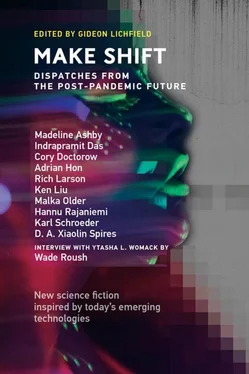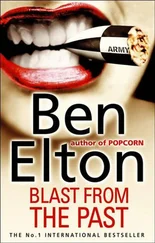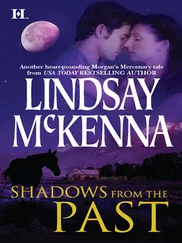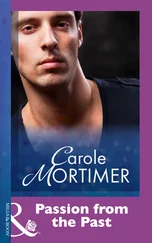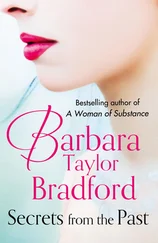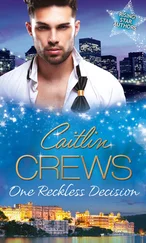So many of the core issues go back to our nation’s Civil War and the creation of the Constitution itself. I found myself doing a lot of ad hoc history lessons. I had several conversations with friends about how the Founding Fathers were quite comfortable with the institution of slavery when they were creating the Constitution. There were a number of people quite uncomfortable with its end and not supportive of the protests for civil rights that followed or the BLM [Black Lives Matter] protests today.
Nevertheless, it became overwhelmingly obvious that many Americans in the midst of the BLM protests just didn’t know history. Many were clueless around the history of Africans in the Americas in a way that was shocking. The Iroquois Nation was heavily borrowed from in the creation of the US Constitution but you almost have to be in a graduate-level history course to know that. Unless you’re a history major in a school that values diversity or a life-long reader on a quest, one can completely miss the basics, and become quite defensive about it. Then you have others who present history in this bizarre propagandized fashion that has people ready to fight you when you tell them it’s not true.
For many, pop culture is the lens for understanding history, which means that Black history for much of the populace hinges on the rise of a new music subgenre created by Black people or an unknown moment like [the] Tulsa massacre referenced in a popular television show like Watchmen . Fortunately, the Internet is a great source to get the basics if you can follow the social media bread crumbs that led you there. Many people are looking for references for books, films, and documentaries to get some framing for what’s going on. I started doing history lessons on my Utopia Talks because you can’t talk about futures without knowing histories, which were futures for their predecessors. However, in Afrofuturism, time is treated as nonlinear, so it becomes a healthy way to explore histories, futures, and resilience.
Nevertheless, I’ve had daily conversations around everything from the philosophy behind the politicization of masks to Indigenous frameworks to marketing pivots to mass manipulation to Maroon societies of Africans in the enslaved Americas. In some ways, this period was about processing everything you’d ever learned, reassessing philosophical frameworks, and getting grounded in what’s important.
That said, I’ve become vegan for the season. Between work, Zoom birthday parties, and virtual lectures, I’ve developed quite a few story ideas. I completed my graphic novel Blak Kube for Megascope. I did the edits in June 2020, miraculously. When June was over so much had happened from protests to looting to Juneteenth to virus surges nationwide, I couldn’t believe it all happened in four weeks. I’ve been watching a lot of Korean cinema with my best friend and making an unusual amount of soups with garlic and ginger. I just learned that the current president is sending troops to my city. I prayed about it and I’m fine.
WR:You’re both a practitioner of science fiction and futurism, in the form of works like the Rayla 2212 books and your Bar Star City film project, and a chronicler of the field through your groundbreaking survey Afrofuturism .In your mind, what good can sci-fi and futurism do for readers and audiences in the here and now? And do these forms of expression take on a different importance in times of crisis?
YW:I would like to see more visions that reflect what a healthy society looks like. I would love to see more schools of thought around healthy futures that were created as worlds that people can read [about] in a book or watch in a film. Healthy societies can have issues, conflict, and all the drama required of a story. I’d like to see more that reflects a kind of world we’d like to live in. I’d like to read a sci-fi story and say, “Gee, I’d like to live there. This place seems like it treats people fairly or at least values doing so.” I’d like to see more stories where resilience tools from the past are put to use. Obviously, there’s sci-fi that does this, but I’d like to see more. Perhaps that’s why I write in the genre, as a way of problem-solving futures, or as Toni Morrison said, to write stories you’d like to read.
I understand that a world moving through or in a dystopia makes the hero’s journey a fundamentally high-stakes one. I think many creators are more inclined use history to frame their dystopias than to frame utopias or protopias. But for many, writing in a dystopia is a form of problem-solving, and for others it’s a release valve.
WR:COVID-19 deaths among African Americans have been two to three times higher than what you would expect based on their share of the US population. It’s not as if the SARS-CoV-2 virus has revealed disparities in healthcare and health outcomes; rather, it’s exploiting this longstanding form of injustice and making it worse. Can sci-fi writers and other artists and creators do anything to help call attention to this nightmare?
YW:I don’t know if they need to call attention to it. The news, the protests, the outrage, and the data are doing a great job of exposure. If someone doesn’t feel a gut reaction to at least say, “I don’t want this in our society,” then it’s not a question of exposure to information, it’s a question of empathy. It’s a question of, well, if you’re not Black, Latino, a front-line worker, living in a nursing home, or a crowded city, why should you care? It’s a question of why should I wear a mask to protect someone else? It’s a question of why are so many in our society quick to otherize people as if we aren’t connected? This is beyond individualism. Is it mass narcissism? In that respect, sci-fi does write about otherism and how it functions using both the alien and cyborg metaphors. I would love to read more sci-fi that demonstrates how we are all connected. I would like more stories on protopias or with idealized societies in the backdrop. We need more visions of the future that aren’t so reliant on technological innovations but also reevaluate human organizing systems and the philosophies that undergird our world.
WR:When you published Afrofuturism back in 2013, part of what made the field so exciting was that, as you wrote, it “combines elements of science fiction, historical fiction, speculative fiction, fantasy, Afrocentricity, and magic realism with non-Western beliefs,” often in the service of a message of self-determination. But 2013 already feels like a different era, when we’d somehow leapt into the future by electing and reelecting an African American president. It turned out we had no idea what challenges were coming, all building up to the traumas of 2020. Do you feel like current events are changing the conditions under which Afrofuturist work gets produced?
YW:Afrofuturism existed long before the term was created and will exist beyond this period. I don’t see the times as dictating its necessity. People of African descent and the African diaspora will have a relationship with the future, space, and time and will pull from culture, experiences, and the resilience tools to navigate it in part because that’s what humans do.
WR:Has it become harder to sustain the genre’s trademark mix of “imagination, technology, the future, and liberation,” as you described it in the book?
YW:Black people don’t have the luxury of abandoning hope and dreams because of shifts in politics. W. E. B Dubois wrote the sci-fi story The Comet in the 1920s, and while there was a literary cultural renaissance afoot, I wouldn’t call that the best of times for Black Americans. Ezekiel’s wheel as a spaceship reference was in Black spirituals during enslavement. People looked to hope because they had to. Sojourner Truth in the early 1880s said she’s “going home like a shooting star.” When François Mackandal led a six-year rebellion of self-emancipated Maroons against plantation owners in Haiti in 1752, nearly forty years before the Haitian Revolution, people claimed that during his capture he turned into an animal and flew away.
Читать дальше
